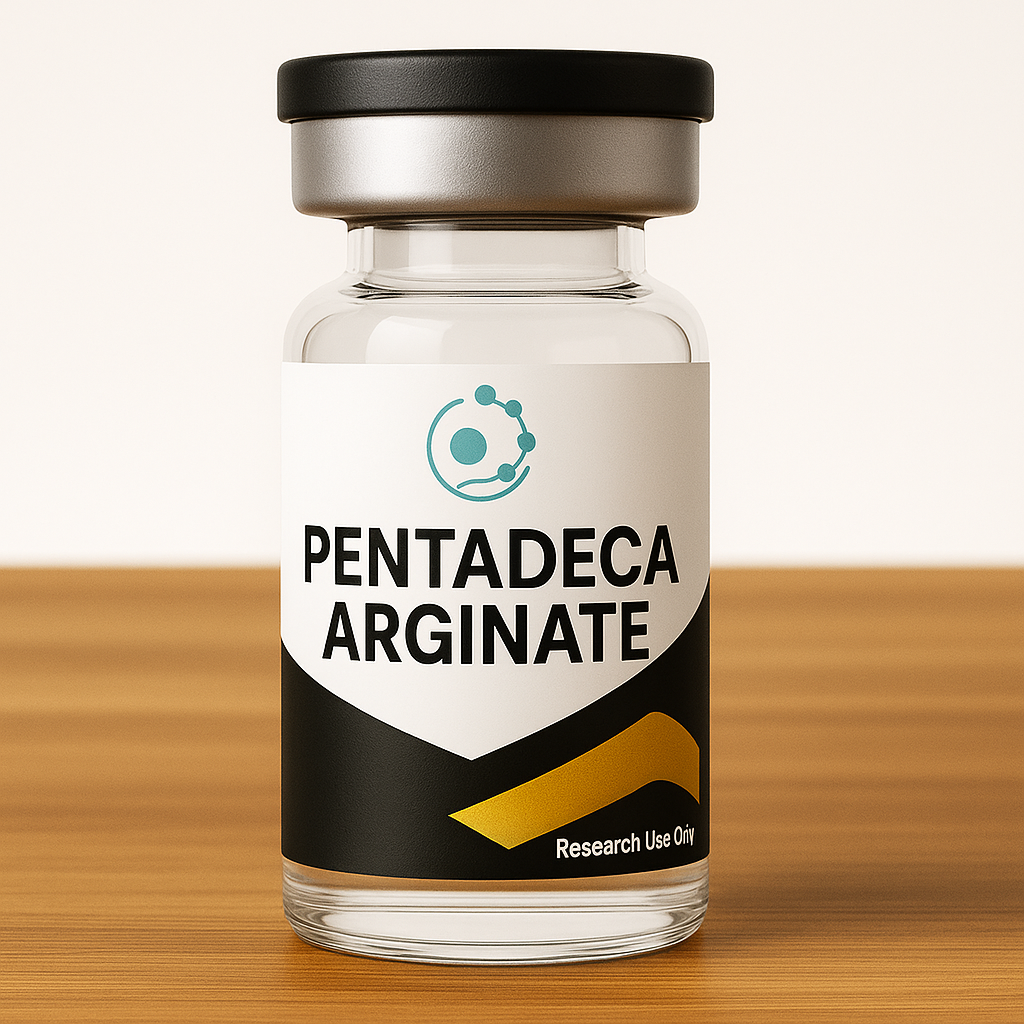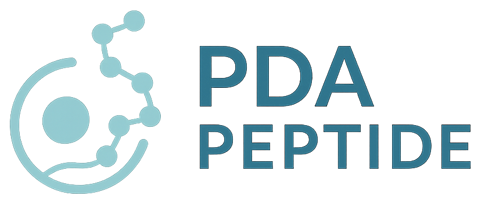PDA Peptide: Advancing Regenerative Therapies for Tissue Repair and Recovery

Through cutting-edge peptide therapy, our goal is to provide access to information about some of the most researched compounds in regenerative medicine today. Among these, BPC 157 has gained global attention for its remarkable benefits in injury recovery, reducing inflammation, and enhancing recovery.
Our mission is to educate, inform, and connect individuals with the science behind pentadeca arginate peptide (commonly referred to as BPC 157) and highlight its therapeutic applications in clinical settings. Whether you’re exploring its use for sports performance, skin health, or joint pain, PDA Peptide is your trusted resource for clear, research-driven insights on peptide therapy.
To explore more about the potential benefits of PDA peptide and how it compares to related compounds, you can review our detailed research guides.
What is PDA Peptide?
PDA Peptide (short for Pentadeca Arginate Peptide) is a synthetic peptide modeled after compounds found in the body. The most notable of these is BPC 157, widely studied for promoting tissue repair, accelerated healing, and inflammation reduction.
Unlike general supplements, PDA Peptide research highlights unique regenerative properties and enhanced stability, making it one of the most discussed powerful tools in regenerative therapies. Researchers continue to investigate how it may influence tissue health, collagen synthesis, and cellular function, while improving nutrient delivery and blood flow for faster recovery.
For detailed dosage insights and administration details, visit our resource on PDA peptide dosage guidelines to better understand safe and effective use.
BPC 157 and Its Potential Benefits
Studies into BPC 157 suggest wide-ranging potential benefits across multiple systems of the body:
- Tissue repair and soft tissue regeneration
- Improved injury recovery and accelerating recovery in clinical studies
- Anti inflammatory properties and anti inflammatory effects that support chronic inflammation management
- Enhanced skin elasticity and collagen production for better skin health
- Support for gastrointestinal health and gut health through modulation of inflammatory responses
- Improved sports performance through better blood vessels function, new blood vessels growth, and potential effects on nitric oxide
- Aid in joint pain relief, overall recovery, and overall well being
These findings continue to be reviewed, but clinical trials and scientific literature consistently point to remarkable benefits for soft tissue, blood flow, and collagen production.
Peptide Therapy and Regenerative Medicine
Peptide therapy has become one of the most exciting frontiers in regenerative medicine. Unlike standard approaches, peptides like BPC 157 are being evaluated for their therapeutic applications in injury recovery, reducing inflammation, and accelerating recovery.
Healthcare professionals in clinical settings have studied how these compounds could serve as powerful tools for regenerative therapies, targeting issues like chronic inflammation, poor tissue health, and slow wound healing. By supporting growth factors and collagen synthesis, peptides play an essential role in accelerating recovery and overall recovery.
Applications for Skin, Muscle, and Gut Health
- Skin Health & Elasticity: By stimulating collagen production, PDA peptide research suggests benefits for maintaining skin elasticity and minimizing visible signs of aging.
- Muscle Growth & Sports Performance: Athletes have shown interest in peptides for their role in muscle growth, faster recovery, and possible influence on nutrient delivery. These factors may support sports performance and long-term overall well being.
- Gut Health: Because BPC 157 originates from human gastric juice, research has focused on gastrointestinal health, gut health, and potential inflammation reduction.
Clinical Research and Key Differences
Clinical studies have continued to uncover the regenerative properties of BPC 157. Some highlight key differences between oral form delivery and injectable methods, both of which show promise for therapeutic applications. Research suggests potential roles in improving soft tissue healing, wound healing managing chronic inflammation, and supporting injury recovery with accelerated healing.
Importantly, while studies demonstrate remarkable benefits, BPC 157 is not FDA approved. Learn more about whether PDA peptide is safe for long-term use and how it compares to other compounds. For that reason, consultation with a qualified healthcare provider is strongly recommended before considering peptide therapy.
Frequently Asked Questions
Q: Is PDA better than BPC-157?
PDA peptide (Pentadeca Arginate Peptide) and BPC 157 are closely related in structure and function, since PDA is considered a synthetic peptide derived from BPC. Both share overlapping therapeutic applications in tissue repair, injury recovery, and reducing inflammation. Current research suggests that PDA may have enhanced stability compared to standard BPC 157, which could support accelerated healing and overall recovery in some contexts.
However, one is not universally “better” than the other. Results may depend on the individual, the condition being addressed, and guidance from a qualified healthcare provider.
For a detailed analysis, read our comparison between PDA peptide and BPC-157 to understand their differences and overlapping benefits.
Q: What is the most powerful peptide for fat loss?
Several peptides are being studied for their role in fat loss and body composition improvements. Options like AOD 9604 and growth hormone–related peptides are often discussed in this context. While BPC 157 and PDA peptide are primarily recognized for tissue repair, soft tissue healing, and reducing inflammation, they are not considered the leading candidates for direct fat metabolism. Always consult with a healthcare provider before considering any peptide for weight management, as safety, legality, and therapeutic applications can vary.
Q: What is peptide PDA?
Peptide PDA, also known as Pentadeca Arginate Peptide, is a synthetic peptide derived from BPC 157, a compound originally found in human gastric juice. Like its parent compound, PDA is being studied for its regenerative properties in soft tissue, joint pain, skin health, and gastrointestinal health. Researchers suggest that PDA may provide remarkable benefits in promoting tissue repair, reducing inflammation, and accelerating recovery. It is often considered one of the more powerful tools in modern regenerative therapies.
Q: When to take PDA peptide?
The ideal timing for PDA peptide use depends on delivery method, intended outcomes, and professional guidance. Some research suggests that peptides supporting injury recovery, sports performance, and faster recovery may be most effective when used around training or healing protocols. If taken in oral form, timing can also vary compared to injectables. Because PDA and BPC 157 are not FDA approved, it’s critical to work with a qualified healthcare provider in clinical settings to determine the safest and most effective approach for overall well being and therapeutic applications.
If you’d like to understand more about the common side effects of PDA peptide, we provide a full breakdown of potential adverse reactions and user experiences.
Working with a Healthcare Provider
Choosing to explore PDA peptide or BPC 157 should always be done under the guidance of a professional. A healthcare provider can help assess whether regenerative therapies align with your needs, explain therapeutic applications, and guide decisions regarding overall recovery.
By collaborating with a knowledgeable healthcare provider, you can make informed choices about the potential benefits of peptides, their role in supporting growth factors, reducing inflammation, and how they may contribute to overall health.
Conclusion: The Future of PDA Peptide Research
The science of PDA peptide and specifically BPC 157 continues to evolve. With evidence pointing to benefits in tissue repair, joint pain, skin elasticity, and injury recovery, the possibilities are expanding. From clinical studies on chronic inflammation to exploration of growth factors and regenerative properties, peptides represent a new era of regenerative medicine.
At PDA Peptide, our mission is to keep you informed on the latest developments in this field. This will allow you to better understand how peptide therapy may influence your overall well being, support soft tissue health, and offer remarkable benefits for the future of regenerative therapies.
Discover the Power of PDA Peptide
Dive into comprehensive insights on Pentadeca Arginate, revealing its benefits, usage guidelines, and scientific mechanisms to empower your wellness journey.

